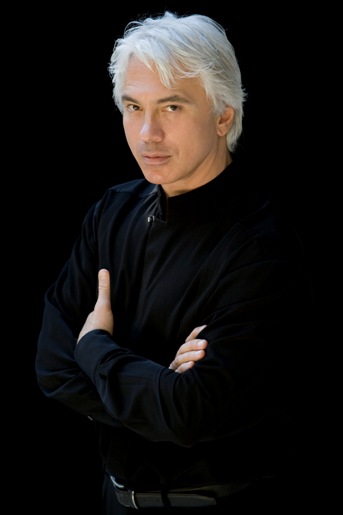Hvorostovsky closes Celebrity Series season with dark Russian romances

Baritone Dmitri Hvorostovsky performed a recital Thursday night at Jordan Hall, the final season event for the Celebrity Series of Boston.
Dmitri Hvorostovsky is perhaps closer to rock-star status than any other male singer in the operatic firmament. Now 51, but still handsome with a distinctive shock of white hair, Hvorostovsky drew huge ovations during his recital at New England Conservatory’s Jordan Hall with an all-Russian program. Fortunately for opera lovers, Hvorostovsky still has the vocal chops to back up all that applause.
That’s not to say that the concert, the final season event for the Celebrity Series of Boston, unfolded entirely smoothly or that the Russian baritone was in fine voice throughout. The voice is still an ample, velvety column of sound, capable both of thunder as well as a sculpted mezzavoce. Where Hvorostovsky had trouble Thursday evening was negotiating the middle ground in between those two. (The baritone may have been suffering from a cold: he produced some odd sounds in between songs.) As a result, one feels that the Tchaikovsky items at the beginning of the program got short shrift as Hvorostovsky was still settling into his voice, searching for the right legato and how to place those high notes. It wasn’t until the brisk Don Juan’s Serenade that one felt that the baritone had found his footing.
The selections of Nikolai Medtner songs that followed proved more satisfactory. These are not operatic in scope as the Tchaikovsky selections are, but feature a more striking piano accompaniment—unsurprising, given that Medtner is much better known for his piano pieces than for his songs—and offer plenty of opportunities for both emotional depth and vocal display.
Gone are my heart’s desires was touchingly sung, with an appropriate quiver on the “shivering leaf” of its closing lines, and in the darkly peaceful The wanderer’s night song, Hvorostovsky demonstrated his marvelous breath control by floating the last note seemingly forever.
After the Medtner was a selection of Rachmaninoff songs, which included some settings of texts by woman poets. Perhaps inspired by this, Hvorostovsky found a more tender approach, as for the fragile and deceptively simple Lilacs. After the thick gloom that had dominated the earlier half of the program, it was a refreshing revelation to hear a more intimate side of the baritone’s art.
The highlight of the evening, however, came with the encores. The first was Iago’s “Credo” from Verdi’s Otello, and the second was a Neapolitan song, Passione, by Tagliaferri.
The Verdi was electrifying. It was almost as though Hvorostovsky was jolting us awake after the Romantic gloom of the Russian romances. The baritone exploited the extreme dynamics of his voice to great advantage, alternating between a whisper and the spectacular thunder of a true dramatic baritone. He created, in just a few minutes, a vivid and terrifying portrait.
Pianist Ivari Ilja proved an ideal partner for Hvorostovsky. The Estonian-born pianist was especially impressive in the Medtner selections, making the complex parts seem easy, and creating a proper atmosphere for the Rachmaninoff. His interplay with Hvorostovsky was also very fine in the Tagliaferri song.
Posted in Performances




